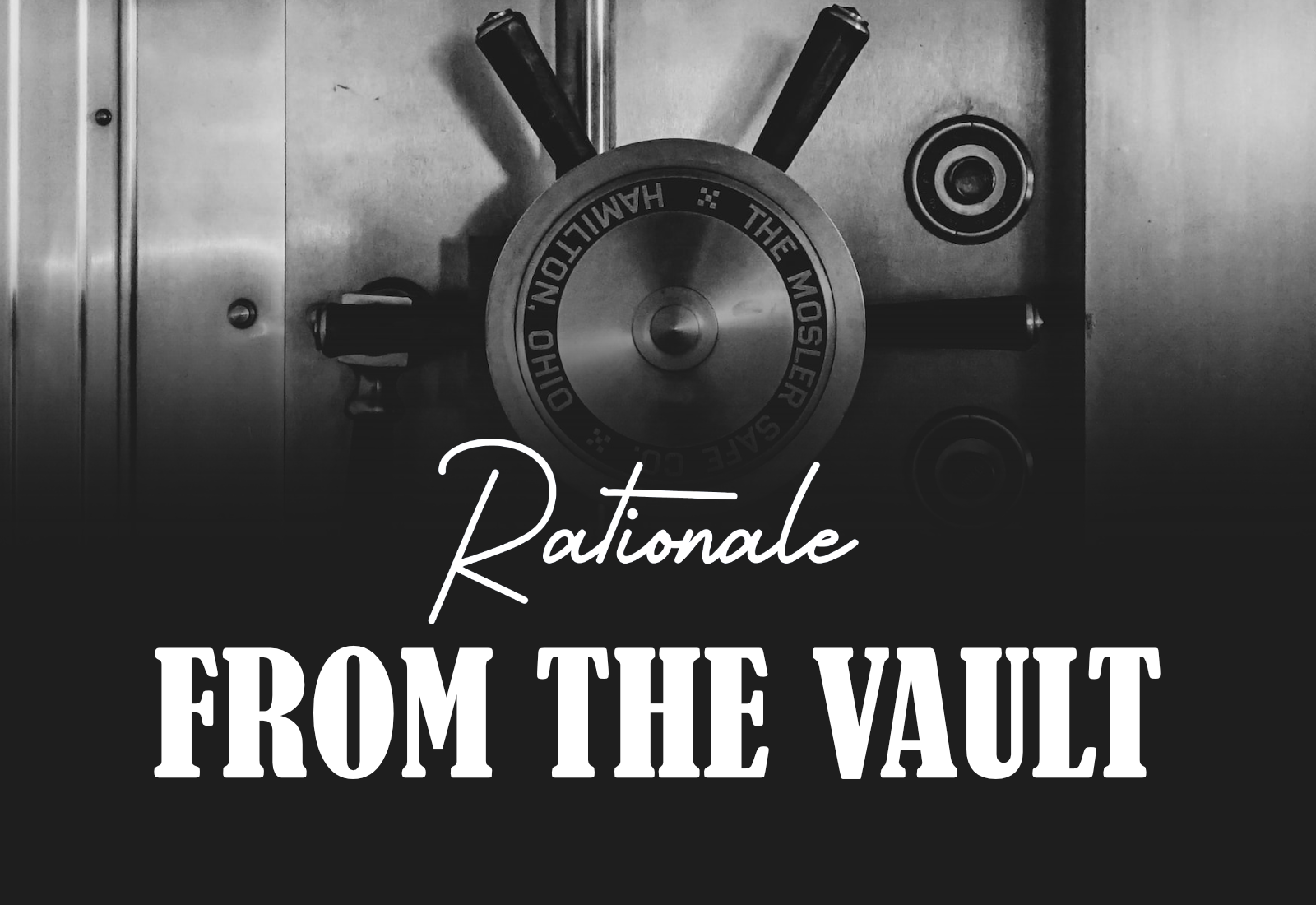This article is part of our ‘From the vault’ series of summer reading. It was originally published in the June 2020 edition of Australian Rationalist.
We’re all wrong about a lot of things. And, if you don’t think you are, then you’re wrong about that, too.
We carry our wrong beliefs around with us, not noticing they’re wrong until we do our research, or someone else points out they are, and sometimes not even then.
Ignorance of one’s ignorance is a symptom of arrogance, which is worse than mere ignorance because it blinds us to it.
Understanding you’re wrong about a great many things is the first and most important part of being wrong the right way.
I recall a time I was discussing the history of women and politics with some people, and I mentioned how Spartan women enjoyed the right to vote. I was wrong.
Whilst it’s true Spartan women enjoyed many more rights than women in the rest of the ancient Greek world, such as Athens, the fact is voting was a male affair.
So why did I think and say otherwise? The reason is I recalled being taught in primary school that Spartan women could vote. Maybe my teacher was wrong and taught me this false information. Maybe I just misremembered being told they enjoyed more rights as being told they enjoyed the right to vote.
Maybe my memory is just entirely wrong and we were never even taught anything about Spartan women at all.
It’s a sobering thought to realise one cannot trust one’s own mind to accurately recall things, or even be honest with oneself – made all the more perplexing when considering that the ‘thought warning’ not to trust one’s mind also comes from one’s own mind.
As undesirable as it is to be wrong, it is even less desirable to be wrong in front of an audience. Several years ago, I was part of a panel discussion on science and religion. At one point I mentioned how the myth of the Egyptian god Horus shares a lot of similarities with the story of Jesus, namely that he was born of a virgin, baptised in a river, and crucified.
After the event I found myself wondering where I’d read that and why the thought popped into my head. Then I remembered I hadn’t read it; I’d heard it in the Bill Maher ‘documentary’ Religulous.
Maher was wrong, and from simply having absorbed his misinformation I was wrong too. (In fact, the myth says that Osiris and Isis conceived Horus, who was neither baptised nor crucified.)
So where exactly did Maher get his information? When I searched it became apparent it wasn’t from any expert in Egyptian mythology. Perhaps he got it from an even more poorly researched ‘documentary’, as I’m told a similar argument is made in Zeitgeist, although I’ve never watched it and don’t intend to waste my time doing so.
Ignorance of one’s ignorance is a symptom of arrogance, which is worse than mere ignorance because it blinds us to it.
There are lessons to be learned here. The first is not to speak unless you have a high degree of confidence what you are saying is true.
Of course, one could still be confident about being right whilst being wrong, but if the confidence is derived from having an informed opinion rather than an inflated ego, this seems a good place to start.
Keeping one’s mouth shut when not confident of what one is saying can be a difficult rule to abide by in a setting where one feels compelled to speak – such as when they’re in front of an audience. But that just makes it even more important to stay silent.
It makes me positively livid to think I spread misinformation in the same way Maher did, and this article is in part a way to relieve the guilt from doing so – and more importantly to correct the record.
Falsehoods spread like a disease. That’s why if you want to be wrong the right way you should always correct the record. With any luck you’ll inform people you were wrong before they pass bad information onto others.
Of course, we shouldn’t be too hard on ourselves. It’s simply impossible to fact-check everything one believes without one’s life being consumed doing so. Too much self-doubt can be paralysing.
So we compromise and do our best to check the facts we think matter, because if we’re wrong about them the consequences are dire. But, otherwise, we get on with our lives not worrying about beliefs that would be insignificant if untrue.
Most people don’t care to know how something works until it stops working. The same is true of beliefs. We are happy to go about our lives with our beliefs until they stop serving us well.
The belief that hot irons do not burn is not widespread. Burn yourself on a hot iron once and you’ll realise your belief was wrong, and you will warn others you care about the dangers of such false beliefs too.
Whereas when the consequences of wrong beliefs are trivial we are more likely to believe them without question. My thinking that Spartan women had the right to vote probably never would have impacted me in a negative way, short of getting that question on a quiz show and missing out on prize money.
One should nonetheless maintain an aversion to being wrong, because it motivates us to do our homework and to check if others have done theirs.
Unfortunately, this aversion also has the side effect of making it difficult to admit when we’re wrong. And if we can’t admit when we’re wrong, how can we ever know when we’re right?
One ought to be wary of the views of anyone who expresses absolute certainty rather than confidence based on evidence and probability.
The reason we pay more credence to the views of scientists, or experts generally, than to the views of others, is because they’ve devoted more time and energy to understanding a particular subject than we have, can, or indeed want to.
But even experts can be wrong. That’s why an argument shouldn’t appeal to an authority figure, but rather to the details of the argument they advance.
Try to prove yourself wrong – believe me, others will – because it’s better to eliminate your false beliefs before someone else notices them. To do this, you have to be open to admitting when you’re wrong, which isn’t easy.
But take comfort in the fact that everyone is wrong about a great many things. The best and brightest can also be embarrassingly wrong. Isaac Newton gave us infinitesimal calculus but he was also an alchemist.
The sad reality is, as Christopher Hitchens said, we are lowly primates half a chromosome away from chimpanzees, and it shows. It shows because, as brilliant as Hitchens was, he was wrong about that. In fact, we have one fewer pair of chromosomes than the other great apes, and there are nine other major chromosomal differences between humans and chimpanzees.
We’re all wrong, but being wrong the right way requires one to understand this. Have an aversion to falsehoods and love of the truth, admit it when you are wrong, and correct the record.
Do these things and you’ll still be wrong about a lot, but you’ll be wrong the right way.
Photo by Jason Dent on Unsplash.














